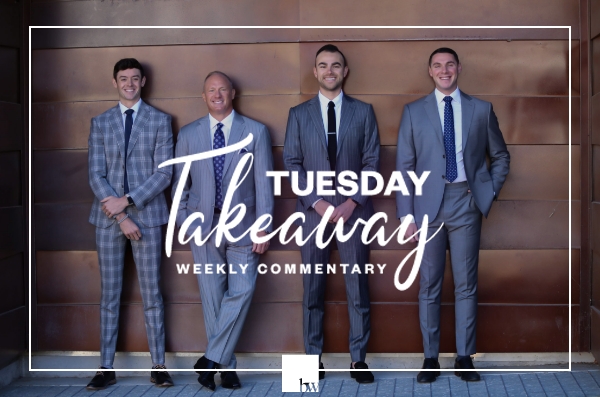
Market Insights:
January 2, 2024
Posted on January 02, 2024
Planning and Guidance, Tailored To Your Life and Goals
Tuesday Takeaway
Posted on July 21, 2015

“Chinese policy makers have gone to unprecedented lengths to put a floor under the market as they seek to bolster consumer confidence and prevent soured loans backed by equities from infecting the financial system. Over the past few weeks, they’ve banned large shareholders from selling stakes, ordered state-run institutions to buy shares, and let more than half of the companies on mainland exchanges halt trading.”
Investors also were appreciative when Greece reached an agreement with its creditors. It accepted austerity measures, which voters had soundly rejected with a ‘no’ vote on July 5 to forge a bailout agreement with European Union (EU) leaders. That doesn’t mean the Greek debt debacle is over. Late last week, the International Monetary Fund issued a memo indicating it would not support a bailout for Greece unless significant debt relief was involved. Neither the EU nor the European Central Bank is interested in forgiving Greek debt. In fact, that was one of the main reasons negotiations with creditors failed the first time around.
“Under a change enacted with the Affordable Care Act, most over-the-counter drugs, like common allergy medications or pain relievers, are HSA-eligible only if you get a prescription for them from your doctor. On the other hand, items like sunscreen and contact lens solution are eligible for purchase – without a prescription – with your HSA funds.”
HSA assets also can be used to pay health insurance premiums (if workers are receiving unemployment benefits) and long-term care premiums. It’s important to make sure HSA funds are used for qualified expenses because any money withdrawn for non-qualified expenses is taxed as ordinary income, plus a 20 percent penalty tax is assessed if the account holder is younger than age 65. That brings us to another advantage provided by HSAs. Kiplinger.com explained money not spent during the contribution year remains in the account. Any earnings grow tax-deferred and the savings that accumulate may be used for qualified medical expenses in the future or, once the account holder reaches age 65, for living expenses. In the latter case, withdrawals may be taxed as ordinary income. ]]>
]]>